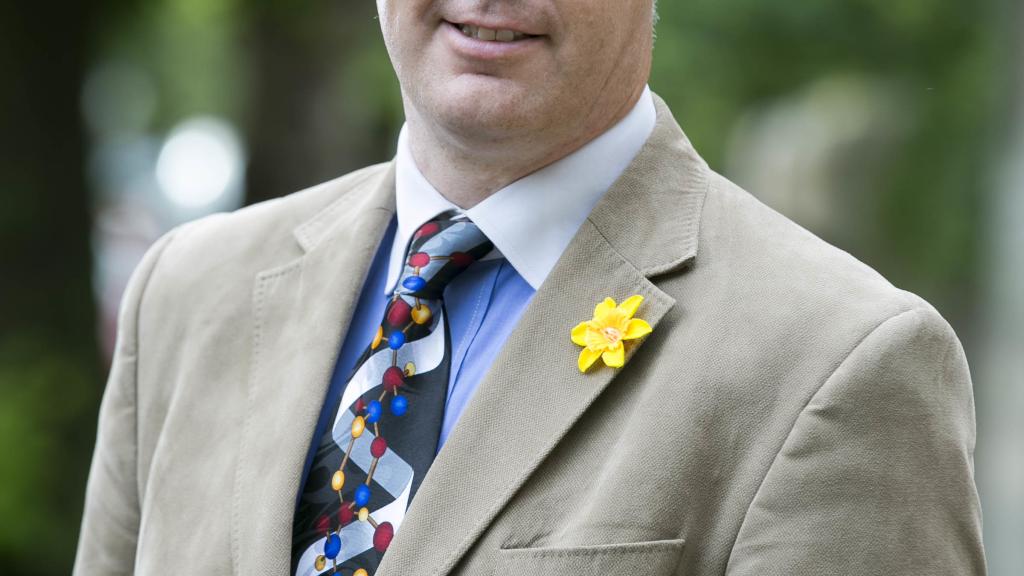
Time to debunk the ‘alternative facts’ about cancer
Cancer patients, their families, friends and our whole community are vulnerable to misinformation about alternative therapies for cancer that can do more harm than good, the Irish Cancer Society’s Head of Research will tell the public tonight (Wed, 15 Feb).
Dr Robert O’Connor will speak at the Irish Cancer Society public talk Cancer: Debunking the Myths tonight at 6pm in Room GEMS0-016, Graduate Entry Medical School, North Campus, University of Limerick.
At the talk he will discuss some of the most common myths and misinformation surrounding cancer. This event is being held as part of the Irish Cancer Society’s ‘Decoding Cancer’ series of public talks, which aims to dispel some of the myths around cancer and how they impact prevention, early detection, treatment, and survivors’ quality of life.
Speaking ahead of the event, Dr O’Connor said:
“Health is big business and we are constantly bombarded with information on health matters. Much of it is inaccurate and misleading, particularly when it refers to cancer. There is huge fear around health matters and most of us feel that we are wrapped in a jungle of this information and don’t know any more what we should be doing to best protect our health.
“In particular, when a person is diagnosed with cancer it can have a devastating effect on their lives and those of loved ones and friends. With a range of emotions and anxieties about what the future may hold, it is understandable for many patients to feel overwhelmed by the information they may need to process as they set out on their treatment journey.
“There are hundreds of different types of cancer. When someone is diagnosed, their doctor will outline the medical treatments available to them, but we know most patients will seek further information – either online, or through friends and family. Unfortunately, though, most of this advice does not come from a qualified professional who has the knowledge to be able to guide an individual case and such information may in fact do more harm than good.”
Currently our media is awash with ‘alternative facts’, and the area of cancer care is unfortunately no different:
- The internet is full of myths about what does and does not cause cancer – from fluoride in our water to our mobile phones, neither of which cause cancer.
- Unregulated ‘nutritionists’ and celebrities endorse so-called ‘superfoods’ or particular fad diets as an aid to their cancer treatment, when in reality strict dietary regimes can do real damage to a cancer patient’s ability to fight their disease.
- Various so-called cancer ‘cures’ are touted online and on social media, but none of these have any evidence base, and many are costly and produced in an unregulated manner, meaning we may not know what’s actually in them.
While debunking these myths, Dr O’Connor will also outline the ways in which we can reduce our risk of cancer, and best fight the disease should it come our way:
“At the heart of any cancer recovery journey must be a healthy, balanced diet, which will often need to be tailored to that patient’s needs. Research is also pointing towards the importance of a healthy diet and physical activity as a way to reduce your cancer risk.
“These measures are actually fairly simple and the European Code Against Cancer has outlined 12 ways in which we can reduce our cancer risk, which includes not smoking, limiting our alcohol intake, taking exercise, minding our weight, availing of screening services and interventions like the HPV vaccine, and avoiding too much sun.
“Ultimately, we have to respect our health. If our car breaks down, we don’t rely on information from unreliable sources to get it back on the road – we get an expert mechanic to find out what’s wrong and make the necessary repairs.
“We need to think the same way when it comes to our bodies. When something’s wrong, we need to get proper support and guidance from professionals and accurate evidence-based supports.
“Thankfully, there are several expert-driven and reliable services available for cancer patients and their family and friends. The Irish Cancer Society’s Cancer Nurseline (1800 200 700), our 13 Daffodil Centres, our website www.cancer.ie and qualified dieticians and oncologists who are aware of the patient’s own personal treatment plans and requirements.”
The Decoding Cancer public talk Cancer: Debunking the Myths is free but registration is required. The talk will also be live-streamed on the Irish Cancer Society’s Facebook page. Follow the conversation on social media #DecodingCancer.
To speak to a cancer nurse on any aspect of cancer contact our Cancer Nurseline on Freephone 1800 200 700, email cancernurseline@irishcancer.ie or drop into one of our 13 Daffodil Centres in hospitals nationwide.
